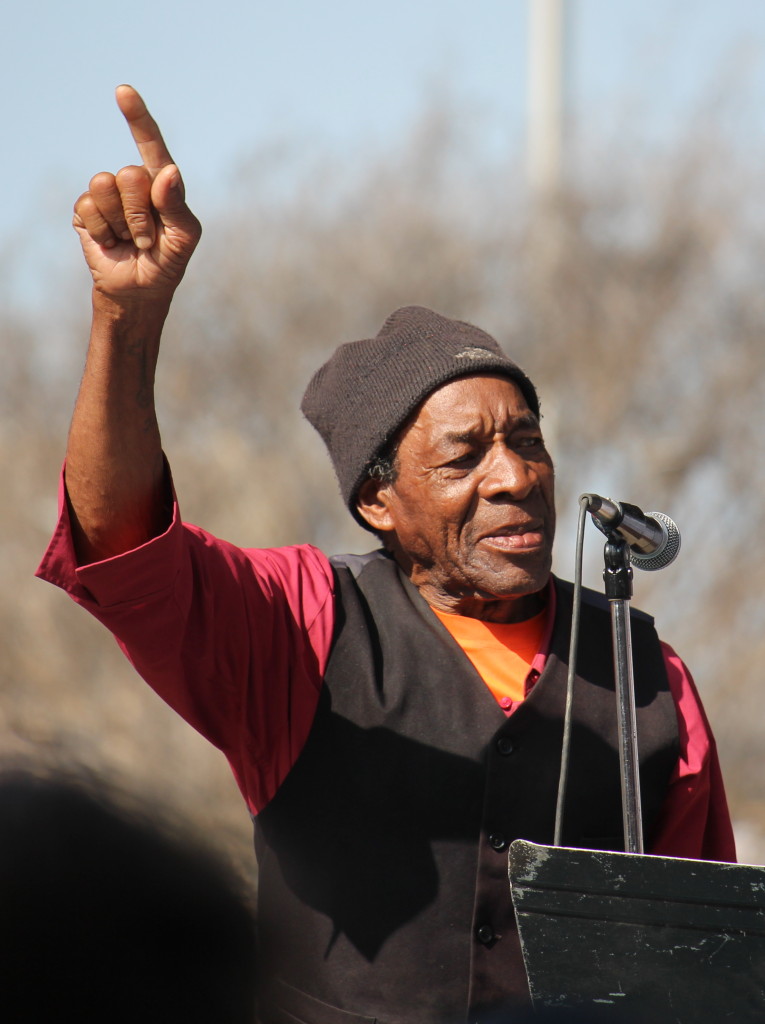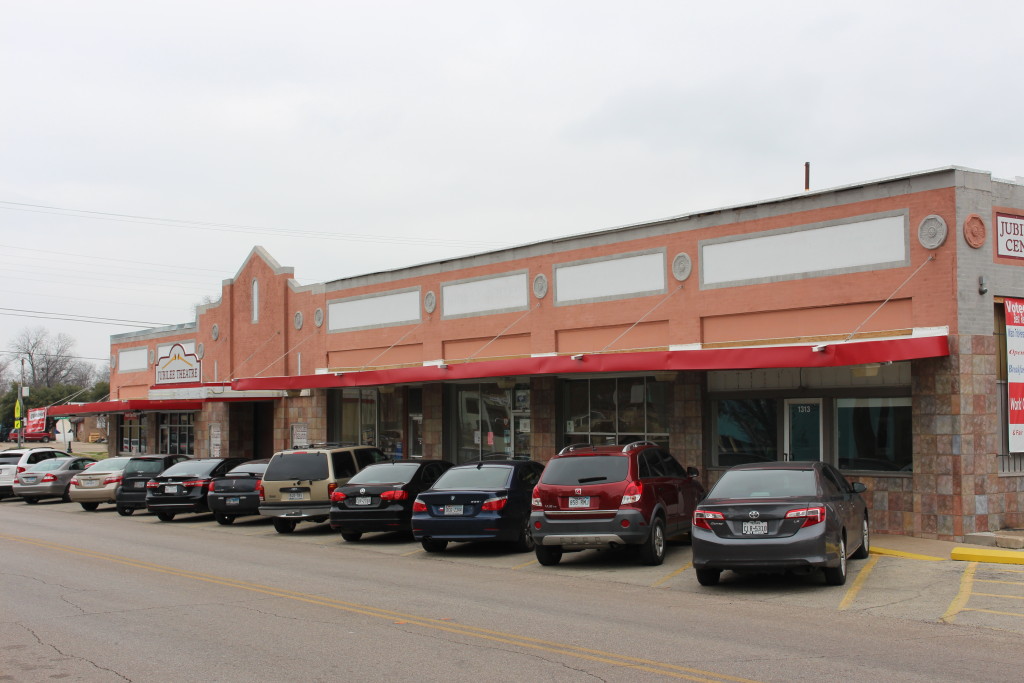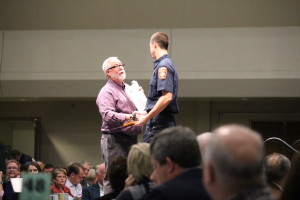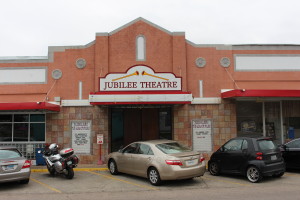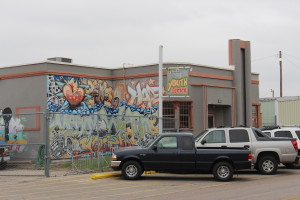 It’s been way too long since I posted anything here, but the simple fact is that life has been extremely settled – perhaps that’s a little over the top, but all things are relative, right? It’s really been pretty busy and exciting, though stable and stationary.
It’s been way too long since I posted anything here, but the simple fact is that life has been extremely settled – perhaps that’s a little over the top, but all things are relative, right? It’s really been pretty busy and exciting, though stable and stationary.
Yet, with all the good things God is doing, our universal enemy has decided to toss a few bricks and I figured a little time alone on the road would do me good and help me gain and/or keep a right perspective.
For the past two years, I have been in a new pastorate, seeking to apply a few things I learned over the 4 months and roughly 9,000 miles I traveled back in 2014/15 as I sought the reflection of Christ in post-modern North America.
To briefly recap, here’s what I discovered. Despite the failings of many churches, God is still very much alive and thriving and so is His Church. While I had a few disappointing experiences, I seemed to tap into a vein of churches, what we might call church type missions, and para-church organizations where Christ was clearly manifest. These places were geographically, socio-economically, racially, and culturally diverse. Some were rather traditional, some served the homeless, some served a primarily immigrant population and others a particular sub-culture, yet in each of these places I saw the hands and feet of Christ at work, meeting needs and changing lives for the better.
Upon my return, I spent a great deal of time reflecting and analyzing, seeking to understand if there were certain common denominators in these vastly different ministries and environments. Initially I found two common factors: a strong emphasis on teaching the Word of God, and great fellowship or hospitality.
A few months ago, as I was considering a couple things we were thinking of implementing in our church a third element came to mind. Perhaps I was a little slow to realize this because of the broken place I was in at the time, but it dawned on me that everywhere I felt the presence of God, I personally, was loved and accepted by those in leadership and beyond. Then, upon further reflection I saw one further factor. Each of these churches/ministries was “other focused.” That is, they were all concerned with helping others and I can almost guarantee that the question, “What’s in it for me/us?” was rarely, if ever, considered.
So here’s what I think is my final conclusion on this whole thing about finding Christ, whether it be in post-modern North America or at any other time in history, or place in the world. Are you ready for this? I hope you’re paying close attention because I think this is big. Simple, but big – so simple that I can’t believe it’s taken me this long to put it all together, but big enough to effect every ministry decision I expect ever to make.
The following summarizes what I learned on my quest: 1. The Word leads us to love God and love others. 2. It makes sense that fellowship/hospitality would follow because it’s natural to want to spend time with those we love. 3. The Word teaches us that we have all fallen short, in other words we are all broken. If we recognize this truth about ourselves, then we must accept brokenness in others. 4. The Word teaches us to reach out and to consider others needs before our own. Perhaps to keep things even simpler we should see it like this:
1. A focus on The Word of God leads us to…
a. Fellowship/Hospitality
b. Acceptance of people where they are
c. Focus and concern for others.
If we have the first item right – the Word of God – then the items that follow are fluid in their order, yet once thing is critical, it’s all about the Word of God. That must come first at all times in in every consideration, because when the Word comes first, the other things flow from that. The Word teaches us that we must love God and love others. Our Jewish brothers and sisters are taught the Shema as the centerpiece of the morning and evening prayer service which includes the following passage: “Hear, O Israel: The Lord our God, the Lord is one. 5 Love the Lord your God with all your heart and with all your soul and with all your strength. 6 These commandments that I give you today are to be on your hearts. 7 Impress them on your children. Talk about them when you sit at home and when you walk along the road, when you lie down and when you get up. 8 Tie them as symbols on your hands and bind them on your foreheads. 9 Write them on the doorframes of your houses and on your gates.” (Deuteronomy 6:4-9 NIV) In the New Testament this command is tied to loving others by Jesus in a number of places, best summarized in the parable of the good Samaritan in Luke 10:25-37:
“25 On one occasion an expert in the law stood up to test Jesus. “Teacher,” he asked, “what must I do to inherit eternal life?”
26 “What is written in the Law?” he replied. “How do you read it?”
27 He answered, “‘Love the Lord your God with all your heart and with all your soul and with all your strength and with all your mind’; and, ‘Love your neighbor as yourself.’
28 “You have answered correctly,” Jesus replied. “Do this and you will live.”
29 But he wanted to justify himself, so he asked Jesus, “And who is my neighbor?”
30 In reply Jesus said: “A man was going down from Jerusalem to Jericho, when he was attacked by robbers. They stripped him of his clothes, beat him and went away, leaving him half dead. 31 A priest happened to be going down the same road, and when he saw the man, he passed by on the other side. 32 So too, a Levite, when he came to the place and saw him, passed by on the other side.33 But a Samaritan, as he traveled, came where the man was; and when he saw him, he took pity on him. 34 He went to him and bandaged his wounds, pouring on oil and wine. Then he put the man on his own donkey, brought him to an inn and took care of him. 35 The next day he took out two denarii and gave them to the innkeeper. ‘Look after him,’ he said, ‘and when I return, I will reimburse you for any extra expense you may have.’
36 “Which of these three do you think was a neighbor to the man who fell into the hands of robbers?”
37 The expert in the law replied, “The one who had mercy on him.”
Jesus told him, “Go and do likewise.” (NIV)
Again, if we are living out these commands, then fellowship and hospitality naturally follow. It becomes an almost automatic byproduct of love.
When we understand the message of the Gospel, that we are all sinners in need of a Savior, we realize that we have no ground whatsoever to stand on, whereby we can judge others. Having had our sins forgiven, we are commanded to forgive others and it becomes natural to accept people the way Jesus does. Consider these words from the Apostle Paul to his friends in Philippi, “Therefore if you have any encouragement from being united with Christ, if any comfort from his love, if any common sharing in the Spirit, if any tenderness and compassion, 2 then make my joy complete by being like-minded, having the same love, being one in spirit and of one mind. 3 Do nothing out of selfish ambition or vain conceit. Rather, in humility value others above yourselves, 4 not looking to your own interests but each of you to the interests of the others.” (Philippians 2:1-4 NIV)
Just in case the point of being other focused isn’t made clear in the above passages let’s pick up the instruction that follows in Philippians 2:5-8, which was part of an early hymn of the church: “In your relationships with one another, have the same mindset as Christ Jesus:
6 Who, being in very nature God,
did not consider equality with God something to be used to his own advantage;
7 rather, he made himself nothing
by taking the very nature of a servant,
being made in human likeness.
8 And being found in appearance as a man,
he humbled himself
by becoming obedient to death—
even death on a cross!” (NIV)
Did you catch that? Jesus, being in nature God, made himself nothing, took on the nature of a servant, and became obedient to the point of death. I promise you that at no time while Jesus contemplated the cross or prayed in the garden of Gethsemane did he ever once say to his Father, “Okay, if I do this thing, what’s in it for me?”
So here’s my new simple metric for ministry decisions. Is what we are considering clearly in line with the Word of God? If so, does it build fellowship, does it express Christ’s acceptance or is it other centered? If we have a definite affirmative to the first as well as an affirmative to any of the following three elements, then we’ll do it. Maybe not right away, since we might need to find and train leadership, but we will work to that end. If the answer is “no” to either question, we will pass.


